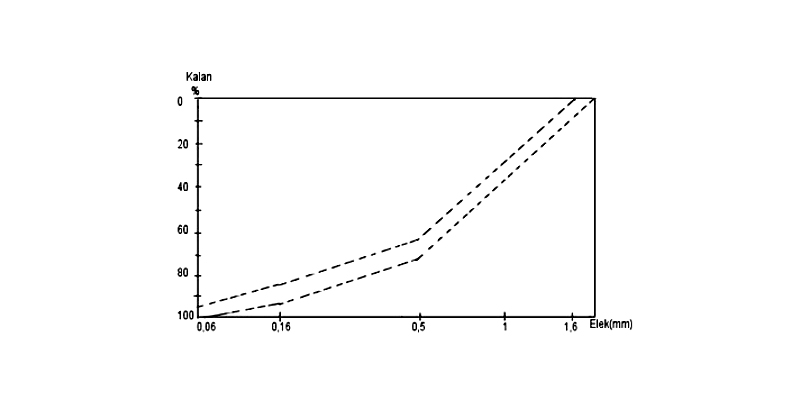Sülfatların Bitümlü Şist Külü İkameli Çimentolarla Üretilen Mikrobetonların Elastisite Modülleri Üzerindeki Etkileri
Doç. Dr. Sabit OYMAEL, Mustafa Kemal Üniversitesi, İnşaat Mühendisliği Bölümü
Prof. Dr. Ing. Ahmet DURMUŞ, Karadeniz Teknik Üniversitesi, İnşaat Mühendisliği Bölümü,
Özet: Bilindiği gibi beton, sahip olduğu birçok niteliği yönünden, inşaat için elverişli bir yapı malzemesidir. Ancak bütün iyi nitelikleri yanında betonun zayıf noktası, yapısı gereği, bulunduğu pek çok kimyasal ortamdan etkilenip kemirilmesi dolayısıyla da söz konusu ortamlarda dayanıklılık (durabilite) bakımından sorunlu oluşudur. Özellikle deniz ve yer altı sularındaki bazı sülfatların sertleşmiş çimento hamuruyla tepkimeye girmesinden dolayı beton genleşerek çatlamak suretiyle önemli derecede bozularak hasar görmekte ve böylece, dayanımı yeterli olsa bile, yeterli ömür uzunluğuna sahip olamamaktadır. Durum böyle olunca günümüzde de sülfat etkisini olabildiğince azaltarak betonun başarımını (performansını) iyileştirmek gerekmektedir. Bunun için üretiminde kullanılan çimentoya belirli oranlarda bazı mineral katkılar ilave edilerek ya da çimentoyla ikame edilerek yapılan araştırmalar sürdürülmektedir.
Bu çalışmanın temel amacı, portland çimentosu ve çimento miktarının kütlece %15 ve %30 oranlarında bitümlü şist (şeyl) külü (BŞK) ikame edilen portland çimentolarıyla üretilen, sülfat iyonu içeren Na2SO4 ve MgSO4 çözeltilerinin etkisinde kalan, mikrobeton (harç) numunelerin sınır yüke göre belirlenen statik (sekant) elastisite modüllerinin değişimini inceleyerek bazı sonuç ve öneriler getirmektir.
Anahtar Kelimeler: Sülfatların Etkisi, Mikrobetonların Elastisite Modülleri, Bitümlü Şist Külü İkameli Çimentolarla Üretilen
Effects of Sulphates on Modulus of Elasticity of Microconcrete Produced with Bituminous Shale Ash Substituted Cements
Abstract: As it is known, concrete is a suitable building material for construction in terms of its many qualities. However, in addition to all its good qualities, the weak point of concrete is that due to its structure, it is affected and gnawed by many chemical environments, and therefore it is problematic in terms of durability (durability) in these environments. Especially due to the reaction of some sulfates in sea and groundwater with the hardened cement paste, the concrete is damaged by expanding and cracking, and thus, even if its strength is sufficient, it cannot have a sufficient life span. When this is the case, it is necessary to improve the performance of concrete by reducing the effect of sulfate as much as possible. For this, researches are carried out by adding some mineral additives in certain proportions to the cement used in its production or by replacing it with cement.
The main purpose of this study is to determine the amount of portland cement and cement content according to the limit load of microconcrete (mortar) samples, which are under the influence of Na2SO4 and MgSO4 solutions containing sulfate ions, produced with portland cements replaced by bituminous shale (shale) ash (BŞK) at 15% and 30% by mass. The aim of this study is to examine the change of the determined static (secant) elasticity modules and to bring some results and suggestions.
Keywords: Effect of Sulfates, Modulus of Elasticity of Microconcrete, Produced with Bituminous Shale Ash Substituted Cements
Makalenin tamamına Yapı Dünyası Dergisi 2006 Sayı: – dan ulaşabilirsiniz.





